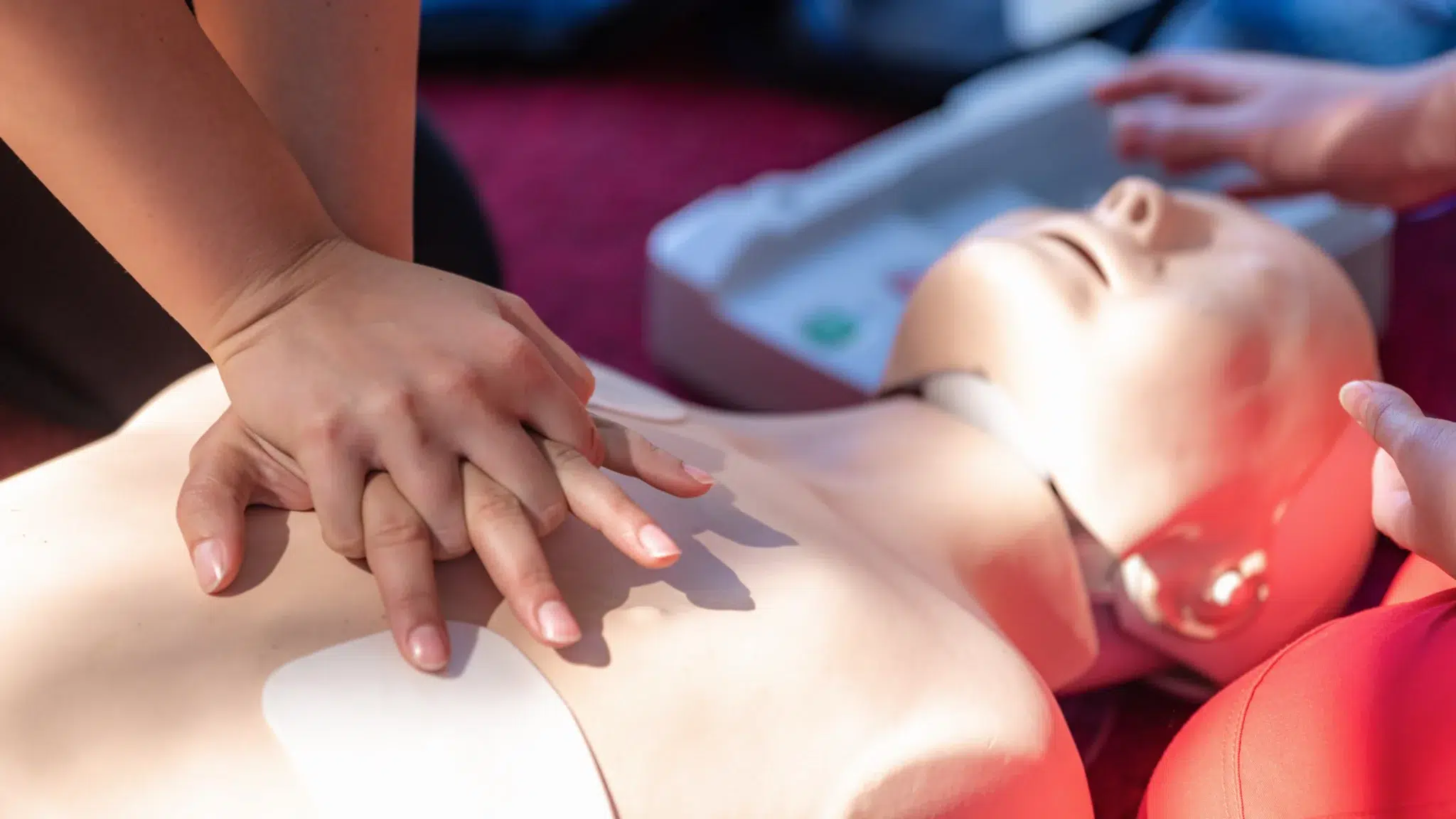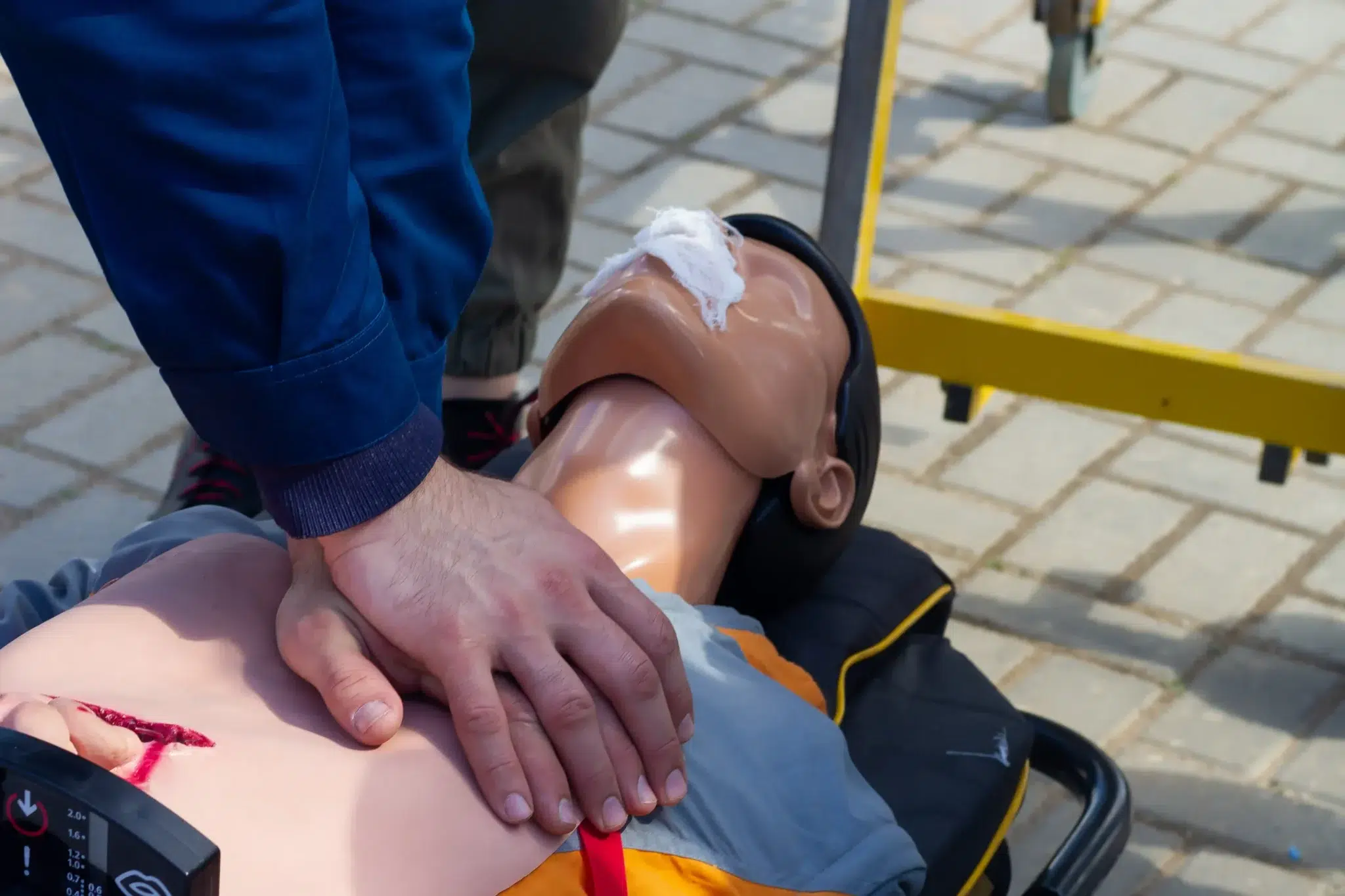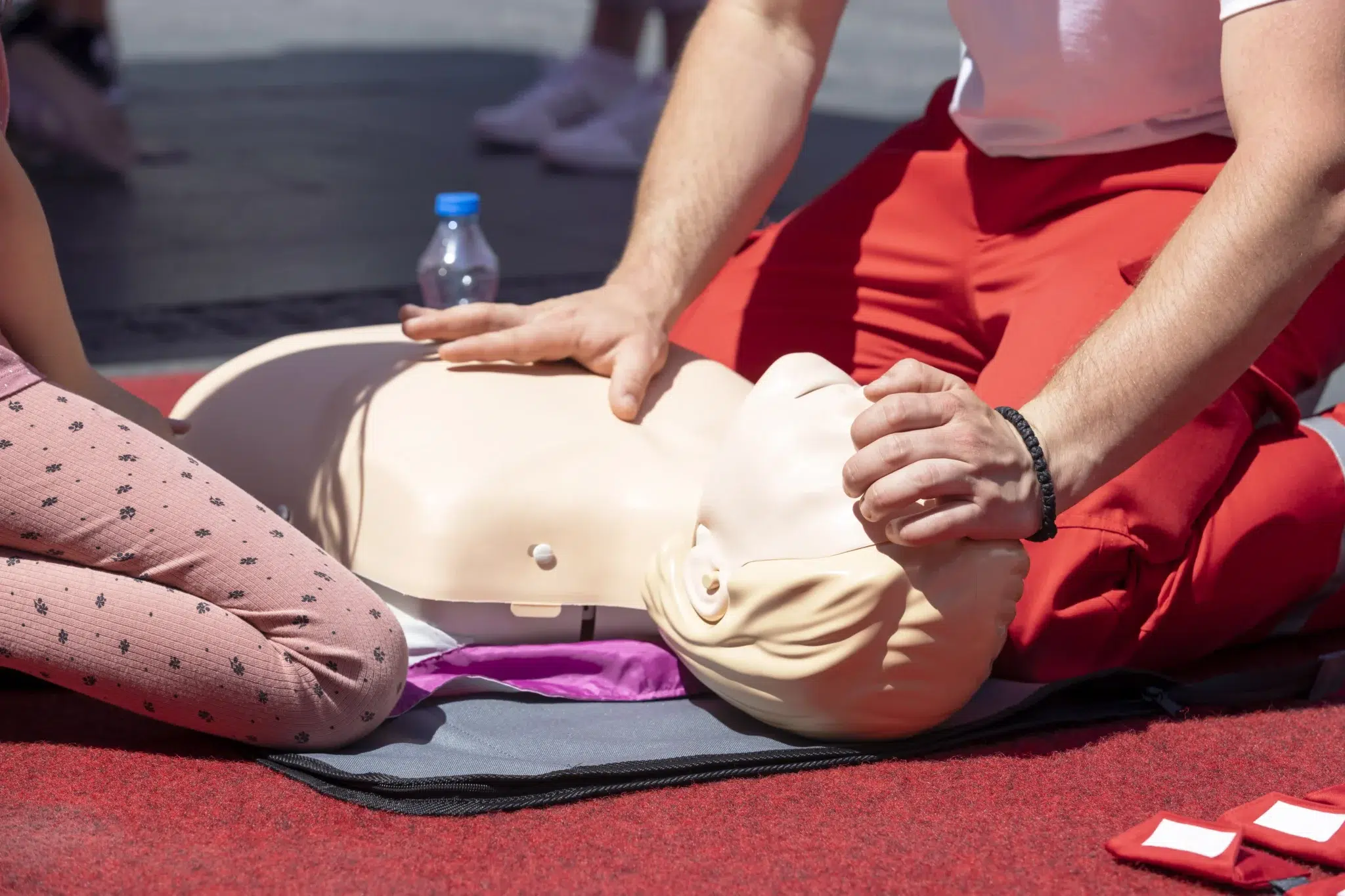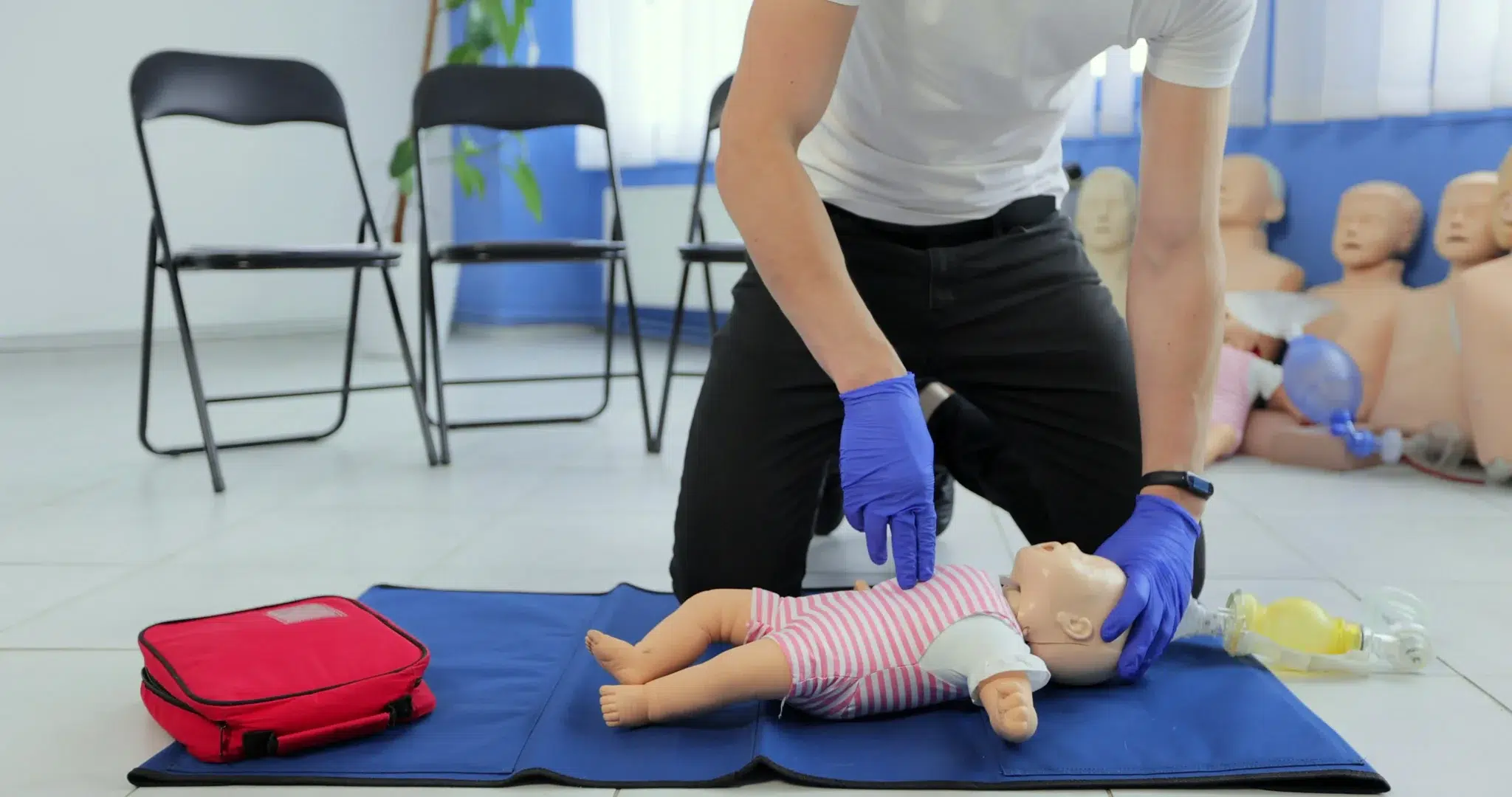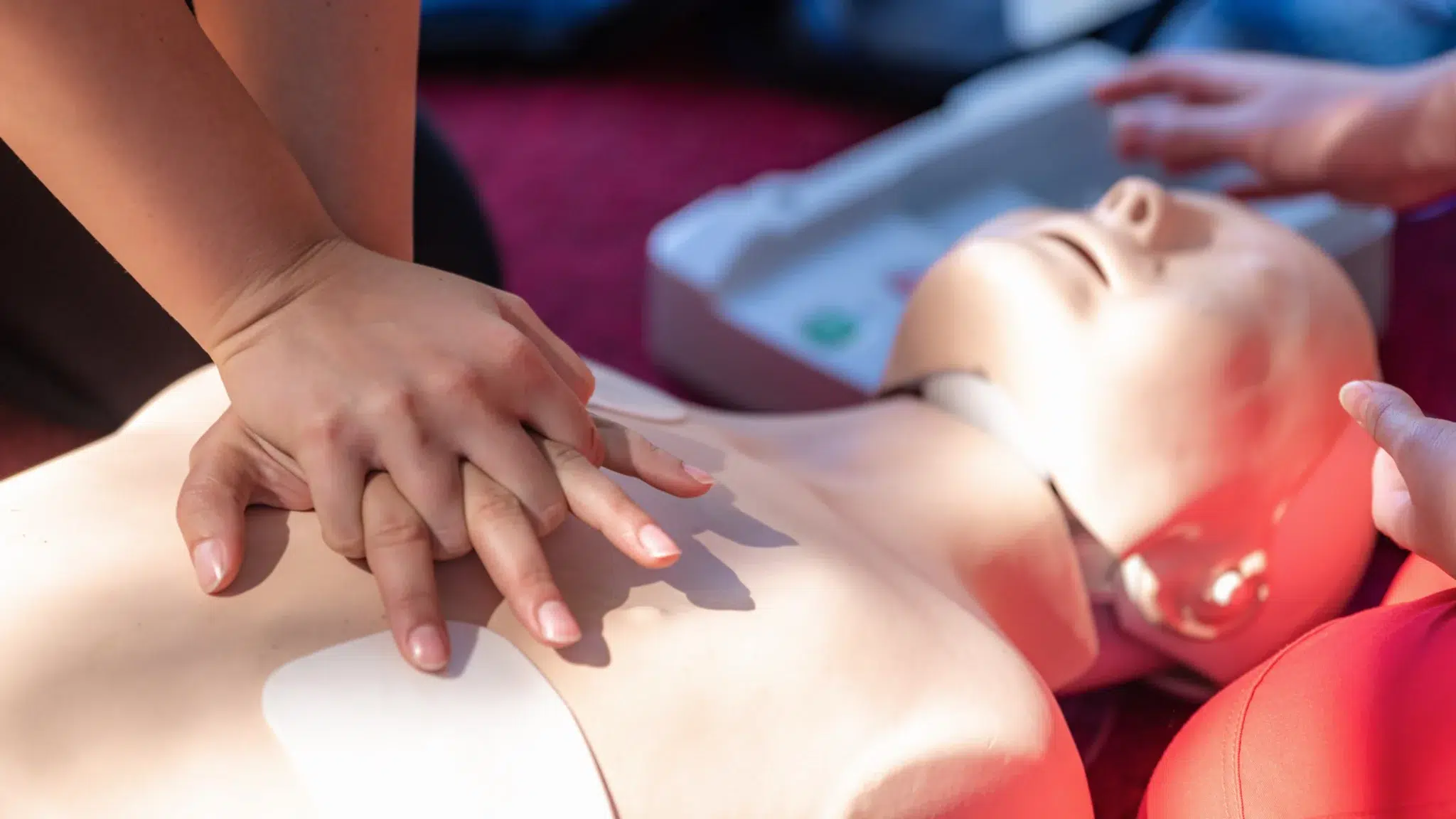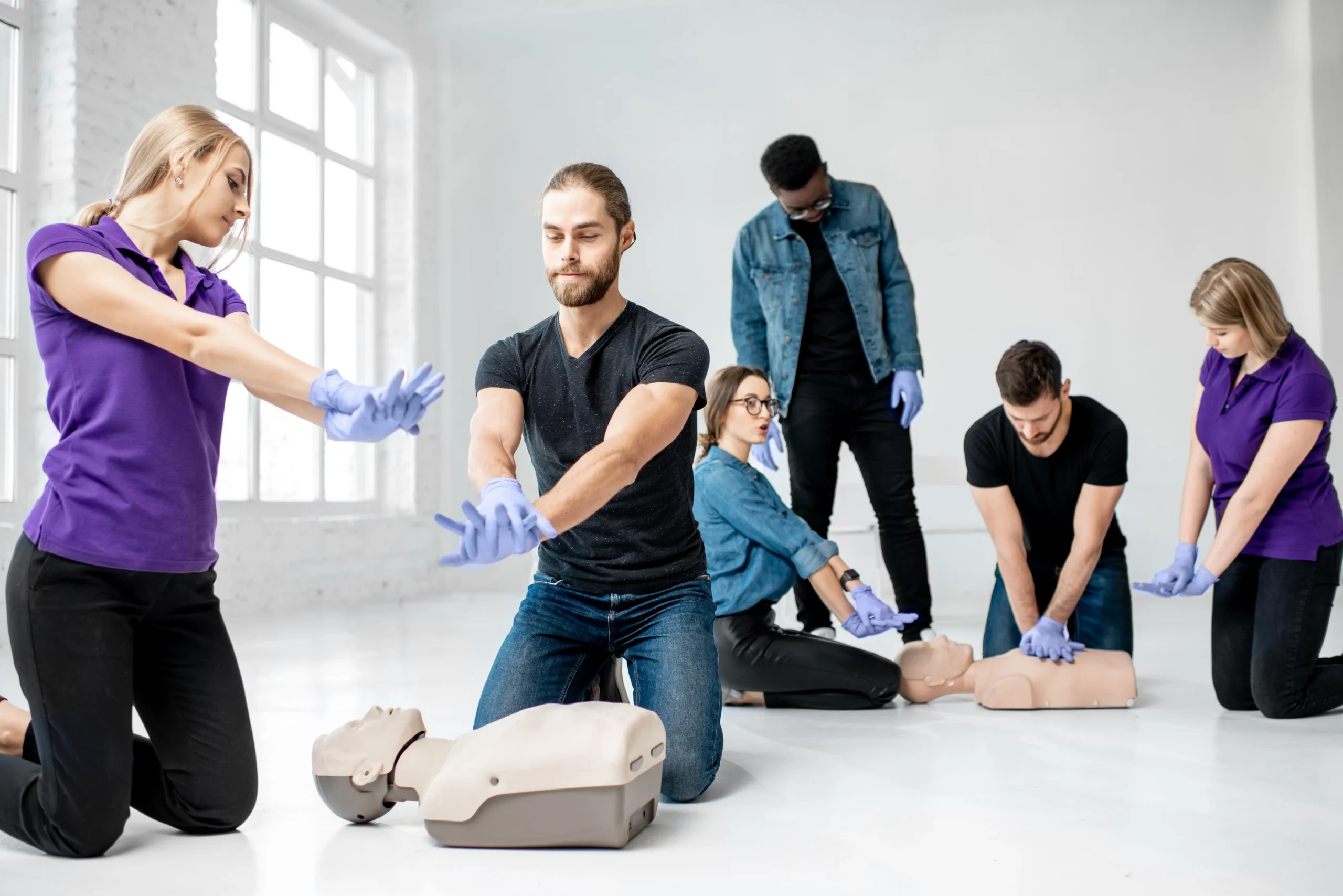Your BLS certification is more than just a piece of paper; it represents your readiness to respond effectively in medical emergencies. If you’re in Sunset and your BLS certification is nearing its expiration date, it’s time to consider a refresher course. This guide will walk you through the process of finding the right bls refresher in Sunset, from understanding the prerequisites to choosing a reputable training provider. We’ll explore the various course formats available, discuss the benefits of hands-on training, and offer tips for maximizing your learning experience. Whether you’re a seasoned healthcare professional or new to the field, this article will provide valuable information to help you stay prepared and confident in your life-saving abilities.
Key Takeaways
- Stay sharp with regular BLS refreshers: Regularly refreshing your BLS certification keeps your skills current and ensures you’re prepared to respond effectively in emergencies. It’s a smart way to maintain confidence and competence.
- Find the right BLS refresher format for you: Choose between in-person and online courses based on your learning style and schedule. Both options offer the same certification but provide different learning experiences. Consider what works best for your needs.
- Make the most of your refresher course: Active participation, peer feedback, and utilizing resources like audio-visual tools can significantly enhance your learning and skill retention. Engage fully to maximize the value of your training.
What is a BLS Refresher Course?
A BLS refresher course is for healthcare providers and other professionals who already have their Basic Life Support (BLS) certification and need to renew it. These courses cover the core skills and information you need to respond effectively in medical emergencies. Think of it as a tune-up to keep your life-saving skills sharp. Since skills can deteriorate over time, a refresher course helps you maintain the muscle memory and knowledge needed to perform BLS effectively.
BLS refresher courses usually combine online learning with hands-on practice. You’ll review important concepts like CPR techniques, using an AED, and managing choking emergencies. This blended approach lets you learn at your own pace online and then practice those skills in person with expert instructors. Regularly refreshing your BLS certification ensures you’re always prepared to provide high-quality care when it matters most. It’s a smart way to stay confident and competent in your abilities, ultimately contributing to better patient outcomes.
Top BLS Refresher Providers in Sunset
Finding the right BLS refresher course can feel overwhelming, but several reputable providers in and around Sunset offer high-quality training. Here’s a quick overview to help you start your search:
Safety Training Seminars
Safety Training Seminars offers BLS certification and recertification courses right here in San Francisco, convenient for anyone living or working in Sunset. They follow American Heart Association (AHA) guidelines and offer various learning options, including in-person classes for those who prefer hands-on training. Their focus on excellent customer service and competitive pricing makes them a solid choice.
American Red Cross
The American Red Cross is a nationally recognized organization with a long history of providing first aid and CPR training. They offer BLS recertification courses online and in person, giving you flexibility in how you learn. Their established reputation and widespread availability make them a reliable option.
CPR St. Louis
While not located directly in Sunset, CPR St. Louis is worth mentioning for those open to traveling a bit further. They provide AHA-accredited BLS refresher courses and emphasize a stress-free learning environment. Their same-day card issuance can be particularly helpful for those needing certification quickly.
Local Hospitals and Medical Centers
Many hospitals and medical centers in and around Sunset also offer BLS refresher courses. Check with institutions like UCSF Medical Center or Kaiser Permanente for their course schedules and availability. These courses are often geared towards healthcare professionals and may offer a more specialized learning experience. You can often find information about these courses on the hospital’s website or by contacting their education department.
What to Expect in a BLS Refresher Course
A BLS refresher course updates your skills and knowledge in Basic Life Support. It’s shorter and more focused than the initial BLS certification, concentrating on the essentials you need for renewal. Here’s what you can expect:
Course Duration and Formats
BLS refresher courses are generally shorter than the initial certification. You can find options that fit your schedule, with many providers offering blended learning or traditional instructor-led formats. Some providers, like ACLS Medical Training, even offer 100% online recertification courses where you learn at your own pace. This flexibility works well for busy professionals juggling multiple commitments. All necessary study materials are usually included, which simplifies the process.
Key Topics
BLS refresher courses cover core concepts and techniques for providing effective basic life support. You’ll review how to recognize someone needing immediate BLS, perform high-quality chest compressions and rescue breaths. The course emphasizes the latest resuscitation practices and techniques from the American Heart Association, ensuring you’re current on best practices for responding to emergencies. Understanding the differences between initial certification and renewal is also crucial, helping you maintain high standards of emergency care. This focus on practical skills and current guidelines makes the refresher course invaluable for healthcare providers.
Skills Practice and Updates
Hands-on practice is a critical part of any BLS refresher course. You’ll refine essential skills like chest compressions, rescue breaths, and using an AED. Because skills can decline over time, regular practice is key. Studies show that refresher training within two to six months of initial training significantly improves skill retention. BLS training equips you with the knowledge to follow emergency algorithms, and the refresher course reinforces this through practice, ensuring you can confidently apply these skills in real situations.
BLS Refresher Course Costs & Value
Getting recertified in BLS is an investment in your skills and career, so understanding the costs is essential. This section breaks down average prices and explores ways to make your recertification more affordable.
Average Course Prices
BLS refresher course prices vary based on location, course format (online vs. in-person), and the training provider. You’ll likely find courses ranging from $70 to $120. Providers like Berkeley CPR Classes offer BLS courses for around $120, typically covering online coursework, the skills test, and your certification card. Safety Training Seminars offers competitive pricing on BLS refresher courses, often with bundled discounts if you’re pursuing multiple certifications. Check our website for the latest pricing and special offers.
Discounts and Promotions
Many organizations offer discounts and promotions to make BLS recertification more accessible. Keep an eye out for these opportunities to save. Sites like American BLS frequently post promo codes for discounts. Even organizations like the Red Cross sometimes offer discounts on training materials, which can be helpful. Advanced Medical Certification is another resource for finding coupon codes. Staying current with your BLS certification is vital, and using discounts can make it easier to maintain these essential skills. Check with Safety Training Seminars for any ongoing promotions—we’re committed to providing high-quality training at a competitive price.
How to Enroll in a BLS Refresher Course
Getting recertified in BLS is straightforward. This section walks you through the process, from prerequisites to registration. At Safety Training Seminars, we make it easy to stay current with your certifications.
Prerequisites
Before enrolling in a BLS refresher course, ensure you meet the requirements. You’ll generally need a current BLS Provider card. This confirms your previous training and qualifies you for the refresher.
Registration Steps
Ready to renew your BLS certification? Here’s how to register for a refresher course:
-
Find a Course: First, locate a BLS refresher course that fits your schedule and preferred learning style. Safety Training Seminars offers various courses daily in San Francisco, accommodating busy professionals. We also offer online options for added flexibility. Consider our convenient locations serving San Francisco, Daly City, San Mateo, and Oakland, CA.
-
Register: Once you’ve chosen a course, complete the registration through the training provider. This typically involves filling out an online form and submitting payment. Accurate information ensures a smooth registration. Check out our low price guarantee.
-
Review Materials: After registering, you’ll likely receive access to study materials. Review these to refresh your knowledge and prepare for the hands-on skills practice.
-
Complete the Course: Actively participate, engage in the hands-on components, and complete any required assessments. Upon completion, you’ll receive your updated BLS Provider card, valid for two years. For ongoing skills maintenance between renewals, consider our RQI programs.
In-Person vs. Online BLS Refresher: Which One Is Right for You?
Deciding between an in-person and online BLS refresher course depends on your learning style, schedule, and preferences. Both formats cover the same core material and result in the same certification, but the learning experience differs. Let’s break down the pros, cons, and key factors to consider.
Pros and Cons of Each Format
In-Person BLS Refresher:
Pros: In-person courses offer hands-on practice and personalized feedback from a certified instructor. This direct interaction can significantly enhance the learning experience, especially for kinesthetic learners. You’ll also have the opportunity to practice skills with other healthcare providers, ask questions in real-time, and build camaraderie. In-person training reinforces the importance of teamwork in emergency situations.
Cons: In-person classes require a greater time commitment, as you need to travel to a specific location and adhere to a fixed schedule. This can be challenging for those juggling work, family, or other obligations. The cost of in-person training may also be slightly higher due to venue and instructor fees.
Online BLS Refresher:
Pros: Online BLS refresher courses offer unparalleled flexibility and convenience. You can learn at your own pace, anytime, anywhere with an internet connection. This format is ideal for those with busy schedules or limited access to in-person training centers. Online training is often more affordable than in-person courses.
Cons: Online courses may not provide the same level of hands-on practice and direct interaction with an instructor. While some online programs incorporate simulations and interactive exercises, it’s crucial to supplement your online learning with hands-on practice. Self-discipline and motivation are essential for successful completion.
Factors to Consider
When deciding between in-person and online BLS refresher training, consider these factors:
-
Learning Style: How do you learn best? If you thrive in interactive, hands-on environments, an in-person course might be a better fit. If you prefer self-paced learning and enjoy the flexibility of online modules, an online course might be more suitable.
-
Time and Convenience: Honestly assess your schedule and availability. If you have a packed schedule, the flexibility of an online course might be more manageable. If you prefer a structured learning environment and dedicated time for training, an in-person class could be a good choice.
-
Skill Retention: Regardless of the format you choose, regular practice is crucial for retaining BLS skills. Studies suggest that refresher training within two to six months of initial training can improve skill retention. Consider how each format can support your ongoing practice and commitment to maintaining your skills. Supplement your chosen format with additional practice and resources to maximize your skill retention. Regular practice is key.
Get the Most Out of Your BLS Refresher
Getting recertified in Basic Life Support (BLS) isn’t just a checkbox; it’s a chance to refresh crucial skills and boost your confidence in emergencies. Here’s how to maximize your BLS refresher course:
Tips for Active Participation
Active participation is key to absorbing the information effectively. Don’t hesitate to ask questions, even if they seem basic. Speaking up clarifies doubts and helps solidify your understanding. Engage in scenarios and simulations. These hands-on exercises bridge the gap between theory and practice, allowing you to apply your knowledge in a safe learning environment. Practicing resuscitation techniques improves performance and ultimately increases the chances of saving lives. Take notes throughout the course to reinforce key concepts and have a handy reference for later. Finally, arrive prepared and ready to learn. Review any pre-course materials provided to familiarize yourself with the content. A little prep work goes a long way in setting you up for success. Check out Safety Training Seminars’ BLS course for more information.
Using Peer Feedback Effectively
Peer feedback offers valuable insights you might miss on your own. When receiving feedback, listen attentively and be open to suggestions. Your classmates can offer different perspectives and identify areas for improvement. When giving feedback, be constructive and specific. Focus on observable behaviors and offer concrete examples. Remember, the goal is to help each other improve. Research suggests that instructor-led group feedback, regardless of group size, can significantly improve test scores after BLS training. Embrace the opportunity to learn from your peers and contribute to their growth.
Using Audio-Visual Tools
Audio-visual aids can significantly enhance your learning experience. Many courses incorporate videos and simulations to demonstrate proper techniques and real-life scenarios. Pay close attention to these visuals, as they can clarify complex procedures and improve retention. Some courses may also offer online resources or supplementary materials. Take advantage of these tools to reinforce your learning and practice at your own pace. Refresher courses, sometimes supplemented with video training, are a practical way to maintain CPR skills. Embrace these resources to solidify your understanding and maintain your BLS proficiency.
Maintain Your BLS Certification
Keeping your Basic Life Support (BLS) skills sharp is crucial for anyone who might need to respond to a medical emergency. Whether you’re a healthcare provider, a teacher, or a childcare professional, staying up-to-date on the latest BLS guidelines can make all the difference. This section covers how often you should refresh your training and why recertification is so important.
Recommended Refresher Frequency
While your BLS certification is valid for two years, research suggests refreshing your training more frequently. Studies show that CPR skills can decline within a few months of initial training. A refresher course two to six months after your initial certification can help you maintain proficiency. Ideally, refreshers shouldn’t be put off beyond seven months. Think of it like any other skill—regular practice keeps you prepared and confident. At Safety Training Seminars, we offer convenient BLS refresher courses in San Francisco to help you stay at the top of your game. We serve the greater Bay Area, including Daly City, San Mateo, and Oakland, CA.
The Importance of Recertification
BLS recertification is more than just a formality; it’s about making sure you’re equipped to handle emergencies effectively. It’s an opportunity to review the latest guidelines from the American Heart Association, practice essential skills like CPR and AED use, and refine your approach to airway management. Understanding the differences between initial certification and renewal is also key. Renewal courses build on your existing knowledge, focusing on updates and more advanced techniques. For high-quality BLS training and recertification, consider Safety Training Seminars. We offer competitively priced courses in San Francisco and also provide RQI programs for healthcare professionals.
What Past Participants Are Saying
Choosing the right BLS refresher course is a big decision. Hearing from others who have been there can be incredibly helpful. This section shares testimonials and feedback from past participants, giving you a glimpse into what to expect.
Testimonials and Feedback
Students often describe their BLS refresher training as empowering and practical. One participant shared, “I’ve learned some super important skills that could help save a life, and it’s made me see emergencies in a whole new light.” This sentiment reflects the transformative experience many participants have. Another participant praised the instructor: “The teacher was wonderful, smart, clear in everything she said, and really helpful, happy to answer questions.” Clear instruction and a supportive learning environment are key. The convenience of online learning resonated with another student who appreciated being able to “finish my CPR training and First Aid class from the comfort of my home.” Finding a course format that fits your lifestyle is essential. You can read more student reviews and testimonials online.
Most Valuable Aspects of BLS Refresher Courses
Beyond the testimonials, research highlights the tangible benefits of BLS refresher courses. One study emphasized the “improvements in resuscitation practices and techniques, [and] proficiency in performing high-quality chest compressions and rescue breaths” gained through recertification. These practical advantages translate directly to improved patient care. Another study focused on how refresher training “significantly improved the quality of chest compressions among nurses,” demonstrating the value of targeted training. The importance of collaborative learning is clear, with participants in one study finding that “group feedback was helpful for their BLS training.” Learning from peers and instructors can significantly enhance the learning process. You can learn more about the benefits of refresher training from resources like the National Library of Medicine.
Choose the Best BLS Refresher Course in Sunset
Finding the right BLS refresher course is crucial for staying up-to-date with the latest life-saving techniques. With several options available in Sunset, carefully evaluate the quality of the course and make an informed decision that aligns with your professional needs.
Evaluate Course Quality and Instructor Expertise
BLS training equips healthcare providers with the skills to respond effectively in emergencies. Look for a course that follows current American Heart Association guidelines and covers essential theoretical knowledge and practical applications. Experienced instructors who actively engage students and provide personalized feedback can significantly enhance the learning experience. Safety Training Seminars offers BLS certification courses that align with these recommendations. A structured curriculum ensures comprehensive training and covers all the necessary components of BLS.
Make an Informed Decision
Recertification in Basic Life Support (BLS) is essential for maintaining the highest standards of emergency care. Consider your specific professional requirements when choosing a course. Understanding the differences between initial certification and renewal will help you select the appropriate training. The Red Cross emphasizes the importance of maintaining your certification and offers valuable training options. By carefully considering these factors, you can choose the best BLS refresher course in Sunset that meets your individual needs and empowers you to provide confident and effective care in critical situations. For those seeking convenient and reputable training, explore the BLS courses available at Safety Training Seminars.
Related Articles
- Find BLS Training Near You: A Practical Guide – San Francisco CPR Classes
- BLS Renewal Near Me: A Practical Guide – San Francisco CPR Classes
- BLS for Healthcare Providers in SF: A Practical Guide – San Francisco CPR Classes
- BLS Courses in SF: Your Certification Guide – San Francisco CPR Classes
- HeartCode BLS in SF: Your Complete Guide – San Francisco CPR Classes
Frequently Asked Questions
How often do I need to renew my BLS certification? BLS certifications are valid for two years. However, refreshing your skills more frequently, ideally every few months, is recommended to maintain proficiency. Skills decline quickly, so staying on top of your training is important.
What’s the difference between an in-person and online BLS refresher course? Both in-person and online BLS refresher courses cover the same core content and lead to the same certification. The main difference lies in the learning experience. In-person courses offer hands-on practice and direct interaction with an instructor, while online courses provide flexibility and convenience. Consider your learning style and schedule when choosing the best format for you.
How much does a BLS refresher course cost? The cost of a BLS refresher course typically ranges from $70 to $120, depending on the provider, location, and course format. Look for providers like Safety Training Seminars who offer competitive pricing and potential discounts.
What if my BLS card is already expired? If your BLS card has already expired, you’ll likely need to take the full BLS certification course again rather than a refresher course. Check with your certifying organization or training provider to confirm the requirements.
What are the key skills covered in a BLS refresher course? A BLS refresher course covers core life-saving skills such as high-quality CPR, using an AED, relieving choking, and understanding the latest emergency care protocols. It focuses on the essential skills you need to respond effectively in medical emergencies.


